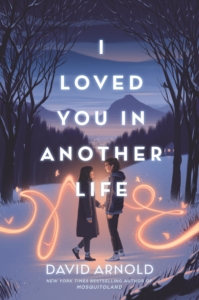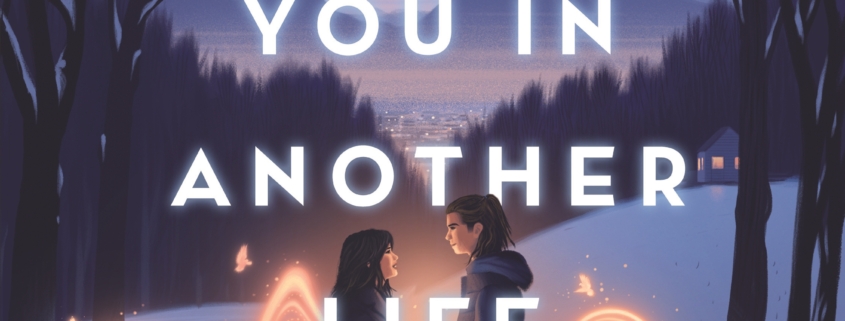I loved you in another life by David Arnold
We have a brilliant guest post from author, David Arnold about his “ro-mantasy”, I loved you in another life. It’s a wonderful blog!

THAT’S WHAT THERAPY IS, I THINK:
WORKING TOWARD ZERO GRAVITY
In the fall of 2019, I landed in the ER with chronic heart palpitations and panic attacks, a cycle in which one symptom revs up the other until you feel like a hummingbird in a hurricane. To this day, I’m not sure which causes which, but whatever balance I’ve found (quite a bit since 2019), I owe to my doctors and therapists.
The truth is, I swore I would never write about it. At the time, I told myself that putting my experience into a character was unnecessary and mean and unnecessarily mean. I told myself that a thousand other authors had already gone there, no reason to add my voice to the mix. But I think what I was really afraid of—and let’s be honest, fear was at the heart of my decision to avoid the topic—was cheapening the experience. Talking about it made it feel small. And maybe that would have been helpful, but of all the words to describe what I was going through, small felt like an ocean away.
Sometimes naming a thing puts it in a box. Neat and tidy, this goes here, that goes there, everything in its right place. Even suitable names, names that make all the sense in the world, operate this way, because it’s not the name itself, but the act of naming a thing that boxes it up. Even so, here I am, writing about my experience, putting it in a book, naming it. The thing I swore I wouldn’t do, right up until the moment I did it. So what changed? Nothing, really. I just remembered something, the oldest trick in the writer’s manual: the best way to write about something you don’t want to write about is to acknowledge your own hesitation on the page.
I’ve heard that being an artist means telling the truth. This always seemed vague at best, self-inflated at worst. It’s not altogether wrong, I would just be more specific: being an artist means opening yourself up to the possibility of truth. Not excavating truth so much as playing in its sandbox. In my book, I Loved You In Another Life, a character named Evan is in therapy to deal with, among other things, panic attacks. His experience is less a result of my own intentional truth-telling, and more a willingness to be truthful, not only about my own mental health, but about all the thoughts and feelings I have surrounding it. In Evan, I was able to write a character whose experiences with panic attacks and therapy mimic my own, but also a character who is afraid to talk about it, lest it feel small. (My own hesitation on the page.) Evan bemoans those who wear therapy as a “badge of honor,” a thought I’ve often had as well, but in the wise words of his therapist, “some people need a badge,” and so here’s the truth: I know what it feels like to accept the lie that anxiety is an unshakable shadow. I know what it feels like to wonder which corner the next panic attack is crouching behind. But I also know what it feels like to walk into a therapist’s office with a hundred-pound weight tied to my ankle, only to walk out light as a feather. Evan sums this up nicely with one of my favorite lines in the book: “That’s what therapy is, I think: working toward zero gravity.”
I think you might be right, Evan.
I loved you in another life by David Arnold is published by Hot Key Books and is available now.




